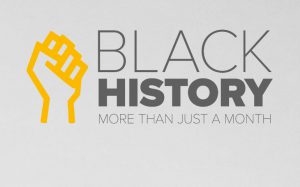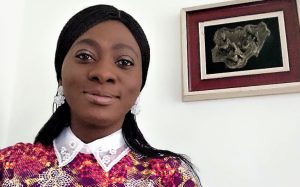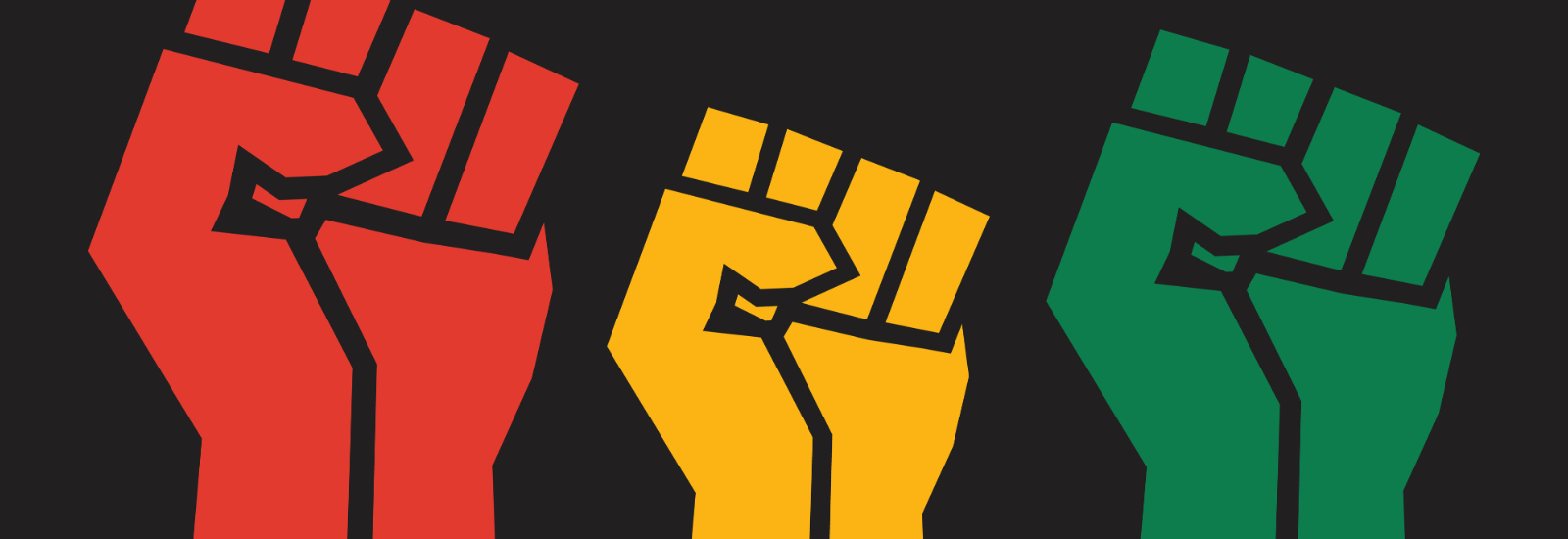In January, Santosh Sinha and Dr Bolanle Adebola co-founded the Black, Asian and Minority Ethnic (BAME) Network at the University of Reading. The aim of the network is to create a safe space for BAME individuals, and contribute towards building a more inclusive community.
 October is Black History Month, a time to celebrate the history, achievements and contributions of black people in the UK. For us, it is also an opportunity to reflect on racial experiences within our community, as well as racial injustices – with a view to helping change how things are.
October is Black History Month, a time to celebrate the history, achievements and contributions of black people in the UK. For us, it is also an opportunity to reflect on racial experiences within our community, as well as racial injustices – with a view to helping change how things are.
CONNECTED speaks to Santosh, Staff Engagement Manager, and Bolanle, Associate Professor in the School of Law at Reading, to learn about the events that led to the creation of the BAME Network, to discover more about the network’s aims, and share how others can get involved and show their support.
Bolanle said: “When I arrived at Reading I was already accustomed to being the only black person in a white space. But before I came to this country I wasn’t black – I was just a person.
“I didn’t realise straight away that I was having racialised experiences and had no-one to ask about the issues creeping up on me; I just thought it was the culture shock of moving countries.
 “The first experience I had at Reading was when I went to get my parking permit. I went to Whiteknights House as instructed in an email, but a member of staff insisted that I go to the Carrington building because that’s where students go for permits, despite having clearly stated I was staff. Eventually I got this person to understand I was staff and their whole attitude changed – they started treating me with respect and found my parking permit.
“The first experience I had at Reading was when I went to get my parking permit. I went to Whiteknights House as instructed in an email, but a member of staff insisted that I go to the Carrington building because that’s where students go for permits, despite having clearly stated I was staff. Eventually I got this person to understand I was staff and their whole attitude changed – they started treating me with respect and found my parking permit.
“I asked colleagues if that was normal, and they told me to take it as a compliment that people think I looked young, but similar events kept happening.
“Another time, I applied to the Diversity & Inclusion [D&I] fund, but never got a response. I searched and found out about the Culture and Diversity group at Reading to connect with people who may share my experiences, but struggled to find them. In my exasperation I penned an email to every officer concerned with D&I at the University, which eventually got a reply from the then Dean for Diversity and Inclusion who arranged a meeting with me. At the end of the meeting, they suggested I join RE-ACT [Race Equality Action Team].
“When I went to Whiteknights House for my first RE-ACT meeting, I made sure to introduce myself and present my staff card to the person at reception who buzzed me in.
“As I stepped into the stairwell leading to the committee rooms, someone shouted at me: ‘Who let you in here? Why are you in here?’ I replied that I came for a RE-ACT meeting. The person interrogated me, asking me to name the other people attending the meeting. By the time they’d finished, I was shaking.
“Again, I asked if this was normal and was told there had been student protests and the person’s reaction could be due to that – but I couldn’t have been better presented and looked less like a student.
“The experience that was the final straw for me, was when I went to get tap water from a kitchen in one of the University’s buildings. A member of staff who was walking past came back, stepped into the kitchen and demanded to know who I was and why I was there. I explained I was staff but they accused me of lying because they knew my department wasn’t based in that building.
“I reported the issue, but this person then put up a sign declaring the kitchen was only for use by members of that particular department; a sign which was later considered to be uncollegiate and taken down. I’ve had to alter my patterns to avoid that part of the building because I don’t feel comfortable going there anymore.”
 Santosh, who provided support during that last experience noted: “Sorry is not a difficult word to say – to just accept your mistake or misinterpretation, but that didn’t happen. What one dreads is something similar happening to a student, who might not be as robust as a staff member – who then feels unable to return to their classes or to the University.”
Santosh, who provided support during that last experience noted: “Sorry is not a difficult word to say – to just accept your mistake or misinterpretation, but that didn’t happen. What one dreads is something similar happening to a student, who might not be as robust as a staff member – who then feels unable to return to their classes or to the University.”
Santosh shares his motivations behind co-founding the network:
“I’ve personally experienced being in meetings where I’ve said things which don’t get noticed, then 10 minutes later someone else says exactly the same thing and it’s received as a fantastic suggestion. After a while I noticed a pattern of this, and it made me wonder: what am I doing here, if my voice doesn’t matter? If my contribution isn’t worthy of inclusion then I’m wasting my time being in the meeting.
“Part of the reason for creating the network was to connect BAME individuals at the University, to help us understand how widespread experiences such as mine and Bolanle’s are, and to bring people together to demand the right action.
“No one has any business asking a fellow member of staff to get out of a building or use it in a limited way – that’s not on at all. For every ‘Bolanle’ experience, there are at least 15 we know from the group who have had similar experiences but who chose not to report it.”
The BAME Network
Santosh and Bolanle’s experiences propelled them into setting up the BAME Network, with the aims of supporting, engaging and building a more inclusive community.
Santosh explains: “First and foremost the BAME Network is about creating a safe space for BAME individuals to support each other.
“It’s been eye-opening to realise that many of our individual racialised experiences are shared by so many, and to realise that many people will walk away from an incident for the fear that it will damage their career progression.
Bolanle adds: “There are over 500 BAME individuals at the University, yet they essentially exist in different units that don’t mix. Despite both working at Reading, myself and Santosh actually met at an external event. The network aims to create a space where people can relax, not feel the need to police themselves, and to feel like they belong.”
Santosh continues: “Our other aims have come from discussions with our network members. Our second priority is engagement in terms of the wider University; we need reporting procedures in place and a very clear process for raising objections. Our third priority is building a more inclusive University for all.”
The network runs a variety of activities from social events, to events aimed at addressing specific issues, such as helping BAME colleagues apply for teaching fellowships to support their career progression.
Get involved
Santosh and Bolanle are also about to launch the BAME Allies Network at Reading, with the hope of engaging more of the University community with the issues BAME staff face.
Santosh said:
“We feel it’s not our responsibility to spoon-feed allies and that it should be your commitment as an ally to educate yourself; however we do want to sign-post people to resources to get them started on their journey as a BAME ally.”
Bolanle adds: “It’s important for white allies to recognise that asking BAME individuals to relive stories to help an ally understand them, often invokes the memory and the trauma associated with these experiences, and it is damaging to their wellbeing to ask them to keep retelling such stories. It’s also wrong to assume that all black people understand racism – I experienced racism in the UK without realising it and I had to educate myself on it. Therefore, allies should also educate themselves on the issue to understand its key elements.”
As part of a series of events that the University is running during Black History Month, Bolanle and Santosh wish to encourage anyone wanting to embark on this journey to attend their next online event: ‘BAME Allies Launch and Discussion: Anti-racism and Allyship’ on 27 October.
Bolanle said: “During the event we will signpost the resources we have created such as our flyer – which includes ally commitments and a link to our electronic wall with themes – as well as suggestions of podcasts to listen to and TV shows to watch. As you start to engage with the process, you’ll find yourself accessing other resources to build up your knowledge.
“I don’t accept there’s a position of neutrality in this fight. To paraphrase the American author Ibram Kendi, the moment you condone racism by not reacting, you’re no longer being neutral. To not be aware of racism is choosing your side – this isn’t a battle for BAME people alone.”
Join the BAME Allies Launch and Discussion event via Microsoft Teams on 27 October, 12:00-13:30 (GMT).
Leading from the top
Bolanle and Santosh wish to give credit to Professor Robert Van de Noort, Vice-Chancellor of the University of Reading, Professor Parveen Yaqoob, Deputy Vice-Chancellor, and Dr Allan Laville, Dean for Diversity and Inclusion, for their commitment and support.
Bolanle said: “They are leading from the top of the University, attending events and volunteering to participate. We’re extremely delighted to be working alongside them and to have them supporting us.”
Santosh agrees: “Having them so involved shows that the University considers this to be important.
“We’re also delighted that the University is undertaking the Race Equality Review. A better understanding of how race impacts the experience of our students and colleagues at the University, and doing something about it, is more meaningful that just words. Bolanle, the network and I have also been front and centre of that process.”
Santosh reflects on the growth of the BAME Network since its launch in January 2020:
“The BAME Network at Reading now has nearly 80 members. We’ve been really successful in pulling this number of people together in this many months – especially considering that we have been in a lockdown for much of the BAME Network’s existence, and with many people worried that joining such a network could backfire on them professionally. We’re very proud of what we’ve achieved so far.
“We would like to encourage our alumni and supporters to join us at our next event on 27 October, and to get in touch if you would like to hear from us or get involved in future events.”
Join the BAME Allies Launch and Discussion event via Microsoft Teams on 27 October, 12:00-13:30 (GMT), or email the BAME Network.






